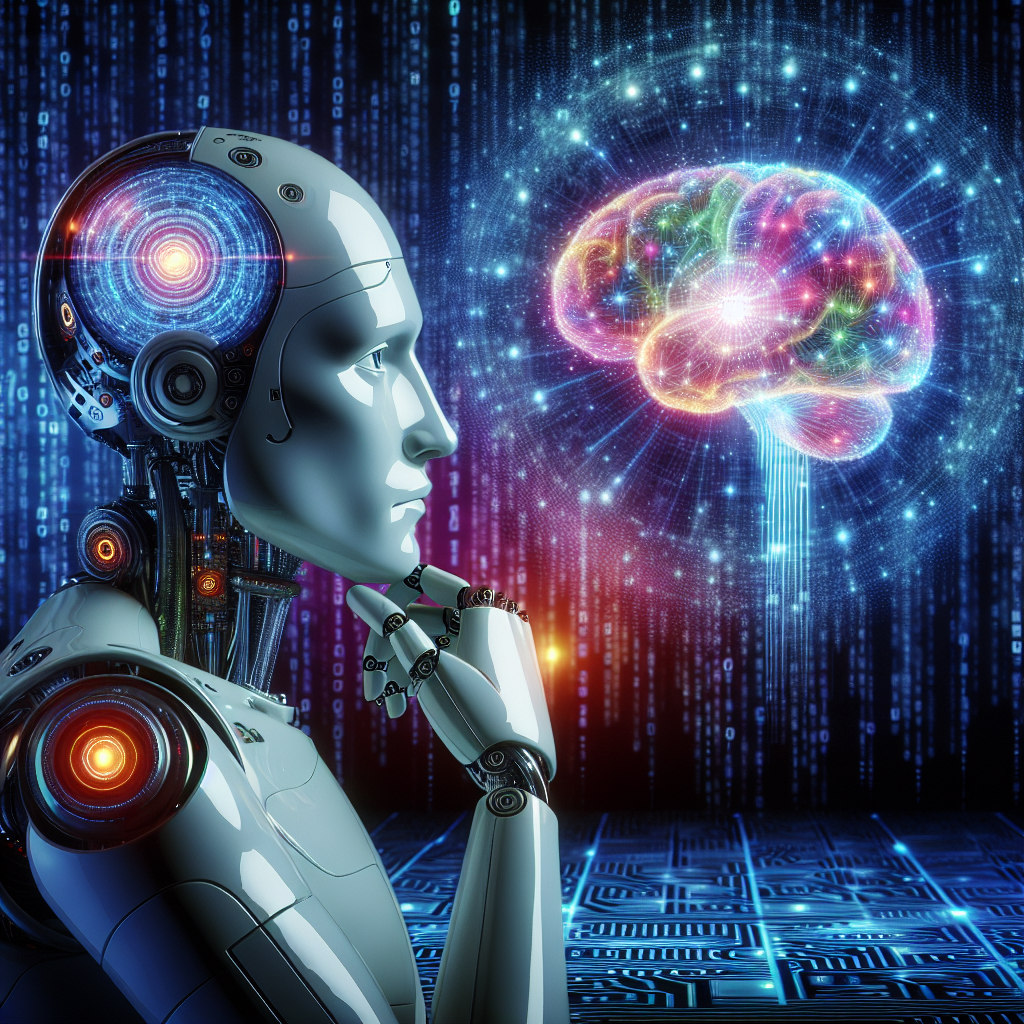Demystifying AGI: What It Is and How It Will Impact Our Lives
Artificial General Intelligence (AGI) is a term that has been gaining increasing attention in recent years. While most people are familiar with the concept of artificial intelligence (AI), AGI represents a significant step forward in the field of machine learning and cognitive computing. In this article, we will explore what AGI is, how it differs from other forms of AI, and the potential impact it may have on our lives in the future.
What is AGI?
AGI refers to a type of artificial intelligence that possesses the ability to understand and learn any intellectual task that a human being can. In other words, AGI is not confined to a specific set of tasks or domains, but rather has the capacity to adapt and learn in a wide range of contexts. This level of intelligence is often compared to human intelligence, as it is not limited to specific tasks or functions.
While current AI systems are typically designed to excel at specific tasks, such as image recognition or natural language processing, AGI aims to replicate the general intelligence of humans. This means that an AGI system would be able to learn new tasks, apply knowledge across different domains, and reason in a way that is similar to human cognition.
How is AGI different from other forms of AI?
One of the key distinctions between AGI and other forms of AI is its ability to generalize across different tasks and domains. While current AI systems are highly specialized and optimized for specific tasks, AGI is designed to be more flexible and adaptable. This means that an AGI system could potentially learn to perform a wide range of tasks, from playing chess to composing music to driving a car.
Another important difference is the level of autonomy and self-learning that AGI systems exhibit. While most AI systems rely on pre-programmed rules and algorithms, AGI is capable of learning from experience, making decisions, and adapting to new situations without explicit instructions. This level of autonomy is what sets AGI apart from other forms of AI and makes it potentially more powerful and versatile.
How will AGI impact our lives?
The potential impact of AGI on our lives is vast and far-reaching. From revolutionizing industries to transforming the way we work and live, AGI has the potential to reshape the world as we know it. Here are some ways in which AGI may impact our lives in the future:
1. Automation of tasks: AGI systems have the potential to automate a wide range of tasks that are currently performed by humans. This could include anything from driving cars to diagnosing diseases to managing financial portfolios. By offloading these tasks to AGI systems, humans could free up time and resources to focus on more creative and strategic endeavors.
2. Personalized services: AGI systems could also revolutionize the way we interact with technology and receive services. By leveraging advanced algorithms and machine learning techniques, AGI systems could provide personalized recommendations, insights, and assistance tailored to individual preferences and needs. This could lead to more efficient and customized experiences in areas such as healthcare, education, and entertainment.
3. Scientific discoveries: AGI systems have the potential to accelerate scientific research and discovery by analyzing vast amounts of data, identifying patterns, and generating new hypotheses. By leveraging the power of AGI, researchers could make breakthroughs in areas such as medicine, climate science, and material science, leading to new innovations and advancements that benefit society as a whole.
4. Ethical and societal implications: As AGI systems become more advanced and autonomous, they raise important ethical and societal questions. Issues such as data privacy, algorithmic bias, and job displacement will need to be carefully considered and addressed to ensure that AGI is developed and deployed in a responsible and equitable manner. Additionally, the potential for AGI to outperform humans in certain tasks raises questions about the role of humans in a world dominated by intelligent machines.
FAQs
Q: How is AGI different from artificial superintelligence (ASI)?
A: AGI refers to a type of artificial intelligence that possesses the ability to understand and learn any intellectual task that a human being can. ASI, on the other hand, represents a level of intelligence that surpasses that of humans in all areas and domains. While AGI aims to replicate human-level intelligence, ASI aims to exceed human intelligence in every way.
Q: When will AGI be achieved?
A: The timeline for achieving AGI is uncertain and depends on a variety of factors, including technological advancements, research progress, and funding. Some experts predict that AGI could be achieved within the next few decades, while others believe it may take longer. Regardless of the timeline, the development of AGI is a complex and challenging endeavor that will require continued research and collaboration.
Q: What are the potential risks of AGI?
A: While AGI has the potential to bring about significant benefits and advancements, it also poses certain risks and challenges. These include issues such as job displacement, algorithmic bias, ethical dilemmas, and the potential for misuse or abuse of AGI systems. It will be important for researchers, policymakers, and industry leaders to address these risks and develop safeguards to ensure that AGI is developed and deployed responsibly.
In conclusion, AGI represents a significant advancement in the field of artificial intelligence and has the potential to impact our lives in profound ways. From automating tasks to personalizing services to accelerating scientific discoveries, AGI has the power to revolutionize the world as we know it. As we continue to explore the possibilities and implications of AGI, it will be important to consider the ethical, societal, and practical implications of this transformative technology. By working together to address these challenges, we can ensure that AGI is developed and deployed in a way that benefits society and enhances the human experience.

